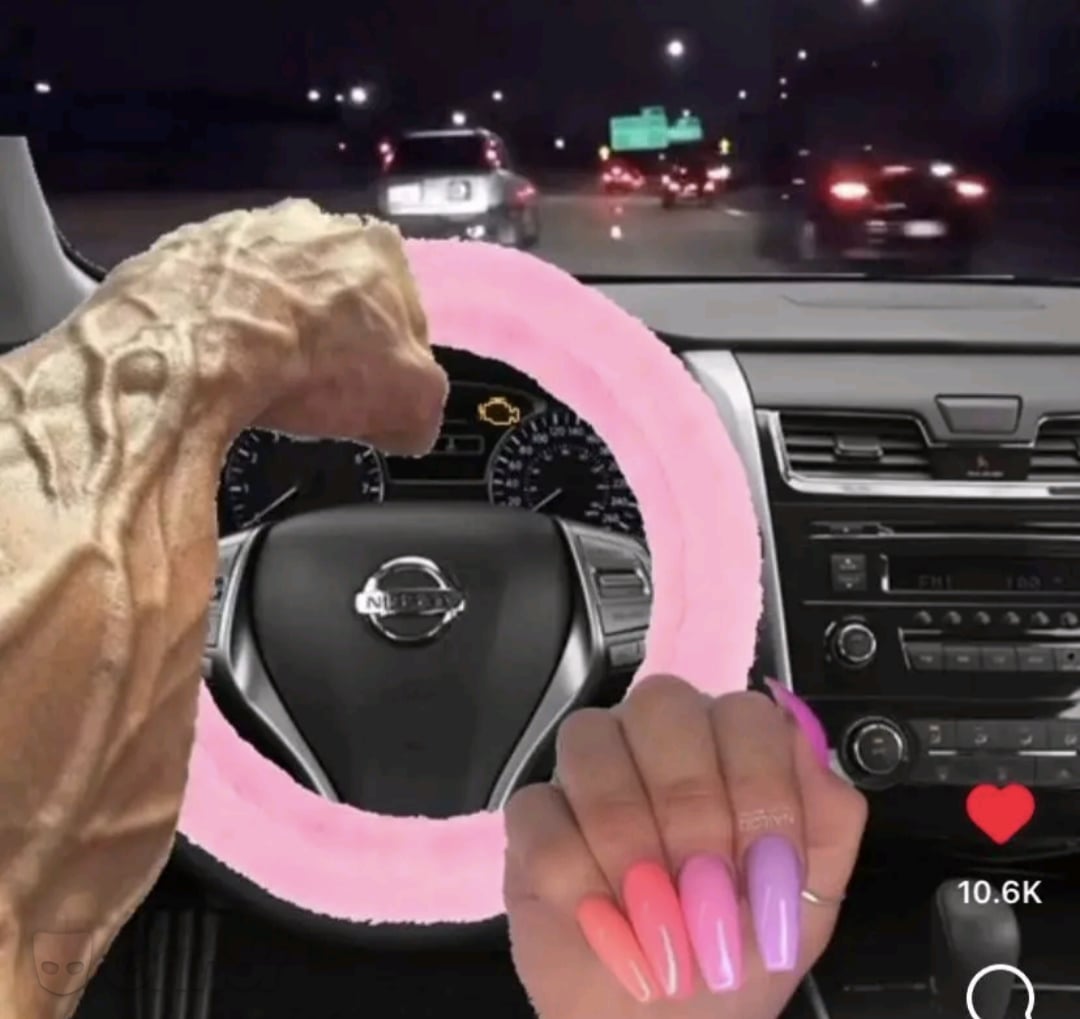Hannah Montana Linux
Ah, a connoisseur.
I’d give Nobara a try. I’ve been using it for about 2 years and it’s been pretty seamless. Already comes with a bunch of Linux gaming related software, like Steam, Lutris, Proton-up, etc.
It also has a bunch of gaming performance patches automatically installed.
If you’re not technically inclined at all and want a console style experience, Bazzite is probably your best bet.
All that said, most mainstream distros will give you a fine gaming experience, you just might have to do some manual fiddling and installing yourself depending on the distro and the games you’re playing.
Windows, lol
That famous Linux distro…
I’m not going to pretend that people won’t have a good time gaming on Windows, but this is like someone asking for Italian food recommendations and you recommending sushi.
Presumably this person knows Windows exists. They don’t need to be told about Windows.
I have good experiences with both bazzite and nobara.
Bazzite is an immutable OS though. So installing additional packages requires you layering them on top. It works differently than the traditional OS. Though if you just use it for gaming and browsing you’ll likely never notice the difference.
Garuda also markets itself as a mainly gaming distro. I don’t have any real experience with that. I tried it, but it didn’t feel like it was for me.
I’ve happily used the former two though.
I run endeavourOS and has done so for a few years already. I love it. For convenience sake I recommend you install flatpak and a kde-discover/gnome-software just for your everyday apps.
I game on a 1070ti and Nvidia is working fine for me on x11 Gnome. Give it a try :)
I’m quite new to linux gaming, and so far I’ve only used CachyOS and EndeavourOS.
I have a dedicated gaming computer with an AMD GPU, only one hard drive and no critical data. Both were easy to install but I just used the default options, didn’t try to do anything complicated.
Performance-wise, I didn’t see any difference (but I don’t care enough to run benchmarks so maybe one gives me 3% more FPS than the other). I play in 1440p.
I’ve had a few mishaps on CachyOS regarding updates (2 years ago) so I tried EndeavourOS and it’s all been smooth since then.I guess the answer to your questions depends a lot on your gaming style and on what is important to you.
If you’re like me, you just want it to work and you do nothing else than gaming, then all the distros mentioned in this thread are about as good.
If you want to squeeze that extra 2 FPS, or if you want to game on older hardware, or if you also use that computer as part of your homelab… then there are going to be differences.
You might want to consider giving us more information on your needs/projects so that we can adjust our answers.Welcome to linux gaming :)
Don’t game much but I’ll pitch in with a different suggestion: Debian minimal install or Arch, same as for every use case.
I prefer apt based distros so I always go Debian, but with flatpak it’s basically irrelevant afaik.
I’ve had no trouble mimicking my deck’s setup and game compatibility on basically any distro, gamescope, proton etc.
Debian isn’t bleeding edge but it also just werks and with flatpak I haven’t encountered any issues getting new stuff essentially totally segregated from the main OS.
I made the mistake of installing Kubuntu 24.04 when I wiped Windows off my gaming machine. I regret it. It’s not SO bad, but I don’t like having Snaps shoved down my throat. Otherwise it’s OK. And you still have great support online and tons of documentation.
The best alternative in my opinion would be Arch via the Endeavor OS distro. It’s easier to install than standard Arch, it has an increasingly large community, awesome documentation (Arch Wiki), and is packages are up to date. And I think it’s a rolling release? (Correct me if I’m getting)
Otherwise if you want stability, I’d suggest Debian stable. They just released a new stable version not too long ago so it’s not too outdated. It’s incredibly stable. However, over time the software isn’t updated to the latest releases for stability’s sake. It takes two years before they release a new version kinda like Ubuntu LTS.
If I need to reinstall, I’ll be using Debian. I don’t want any hassle.
Like others have said, Bazzite is a good option.The auto driver install is amazing. Had no problems with Bazzite, not like PopOs(some Driver issues with older NVDIA GPU). Only thing is the ISO’s are really large (>6Gb).
I use Nobara and I recoomend it to all my friends (the ones who like linux anyway).
while its true that really no linux distro will have any significant better game performance than another, Nobara stands out to me because its made by GloriousEggroll (the same guy who makes the protonGE patches for steam) for his dad so that his dad can have a simple no-fuss gaming computer they can use to game together.
the specific things I like about it are how it helps you get the correct graphics drivers and game/controller fixups at installation, and comes with steam preinstalled. I also like how the Nobara software updater also handles flatpaks as well as regular packages, its my one stop graphical (or CLI) shop for downloading or updating any new programs.
I also like its themes and that its based on Fedora.
Another vote for Nobara.
Everything is packed in and ready to go. No having to install extra shit, no having to download and compile shit. Its just all there, and it works.
And has been not only the smoothest, easiest experience with linux gaming that I’ve had… but just in general the everyday usability is smooth, easy and great too.
My only significant complaint is that all the tech help is on a discord. Which means its not indexable, archivable, or searchable via your search engine of choice… so if you don’t have discord, or if the discord goes away… So does all the knowledge base and help. but thats a complaint I have about discord in general.
I’ve quite enjoyed Tuxedo OS on my gaming rig. Worked right out of the box with every game I’ve thrown at it with my Nvidia GPU.
In summary: Choose what you want, what you have the easiest time working with.
A bit more into my own opinion-
Personally, I use Ubuntu as my gaming and productivity distro. It’s super easy to install and does everything for you (you can customize aspects of installation if you want). I’ve had issues installing Arch-Based distros on my rig, even with UEFI off. Arch-Based distros need more technical knowledge; I’ve found myself unable to dig too deep in the guts of certain aspects. The installer is truly hands-on, and due to the UEFI issue, my manual partitioning failed. It was specifically the EndeavourOS installer, which had this particular issue. Completely deleted my ability to boot Ubuntu, leading to a frantic night of reinstalling Ubuntu. I’d only suggest anything Arch related if you’re comfortable with learn by doing or have advanced experience with the inner workings of software.
For me, Ubuntu is a good middle ground that gives the user room to play, but also a stable base to build on top of. Valve’s Proton Compatibility makes gaming on most distros fairly easy because a lot of the work is done for a user. I’ve run so many games on Ubuntu just fine using Proton. There are exceptions for older games, which have different methods to get them running on Linux.
You can also enable Flatpak on Ubuntu (using commands to install the proper dependencies to make Flatpaks work on your system). There are so many options aside from using Debs and Snaps on Ubuntu. Snaps have gotten much better over time, I find myself not having any noticeable issues now since Canonical has worked heavily on the installer.
The distro I end up recommending more, second to Ubuntu, is Linux Mint because of their onboarding new users experience. It’s just as easy as Ubuntu to use, a bit aesthetically challenged though as Mint really embraces that default older Windows look. However, that familiarity helps ease new users into a Linux Distro.
Just my opinions as I am still a Linux noob (been using it on and off for the last 15 years, but only on old hardware, and I made A LOT of mistakes):
Handheld? --> Bazzite
Desktop? --> openSUSE Tumbleweed
There isn’t “a best” exactly.
There are some things to consider though.
- What hardware are you using?
- Are the latest Video Drivers available for the distro you are considering?
- How much configuration do you want to do?
Its a nuanced question. There isn’t a 1 size fits all approach to this.
For me, going Arch was the move. It fit my usage habits.
Intel Core i5-7300HQ, GeForce 1050 Ti. I know the proprietary Nvidia drivers work on Ubuntu-based and Fedora-based distros, and I think arch-based.





